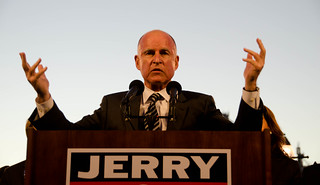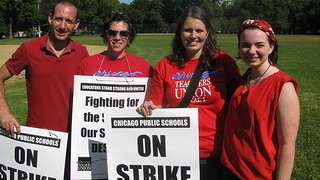
The electronics manufacturing giant Foxconn said that it had closed its plant in the Chinese city of Taiyuan on Monday after a riot. The compoany claimed that a fight broke out in an employee dormitory on Sunday. State-run media say that 5,000 riot police were called in to restore order.
Tech reporter Liau Yun Qing of ZDNet summarizes a Chinese language report on the riot:
Local news site Sohu Finance said the riot involved Foxconn employees and security guards. While the actual reason for the riot was unknown, rumors suggest it started because a security guard had beat up an employee which caused the dissatisfaction of other employees, the news site said.
The Taiyuan factory makes the iPhone 5. Earlier this month, a journalist from the Shanghai Evening Post infiltrated the factory to see how the world’s hottest gadget gets made. You can read an English translation of his expose at MIC Gadget.
Foxconn claims that the fracas was confinded to the dormitory and that no production equipment was damaged. So far, the mainstream English-language media are only telling Foxconn’s side of the story. This imbalance might reflect pro-corporate bias. But it’s also difficult for the mainstream press to get the workers’ perspective on short notice. The workers are on lockdown.
None of the mainstream accounts I’ve read have commented on this information asymmetry. So far, I’ve seen no evidence that the reporters are demanding access to workers, which they should be doing.
The alternative gadget press, which claims to have sources inside the plant, is telling a very different story. MIC Gadget’s exclusive report, supplemented by cell phone pictures from the scene, contradicts the official story. There are no pictures of damage to the production line, but MIC Gadget’s sources on the scene say that iPhone production equipment was damaged during riot. The site also reports that local gangsters showed up to join the melee after being contacted by workers inside.
Foxconn’s stock fell 3% on Monday, which suggests the markets aren’t buying the company’s assurances that the riot won’t delay production of the iPhone 5.
Foxconn has become synonymous with harsh working conditions for electronics workers. At least 14 Foxconn workers committed suicide in 2010. The company has since raised wages and installed nets to catch jumpers. In 2012, workers threatened mass suicide to protest working conditions.
Shortly after the mass suicide threat, the chairman of Foxconn’s parent company, Hon Hai, invited a zoo director to instruct his general managers on animal control techniques, which he hoped they would apply to the workforce:
“Hon Hai has a workforce of over one million worldwide and as human beings are also animals, to manage one million animals gives me a headache,” Hon Hai chairman Terry Gou said.
The Taiyuan plant has already seen smaller labor disturbances this year. Many workers have complained bitterly about harsh treatment by company security guards. Apple is already scrambling to get the iPhone 5 to consumers. If this unrest causes further delays, it may send a message that a dissatisfied workforce is a false economy.
[Photo credit: Methodshop, Creative Commons.]











